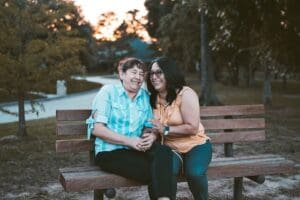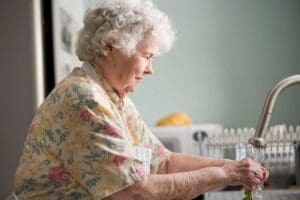Caring for a loved one can be a rewarding yet challenging experience, particularly when navigating the financial implications. Luckily, in Georgia, there are several programs designed to provide financial assistance and support services to family caregivers. In this guide, we will explore the various other health insurance options available for caregivers in Georgia and provide a comprehensive overview of each program.

Medicaid Waiver Programs
Medicaid is a joint federal and state-funded healthcare program that provides coverage to low-income individuals, including seniors and people with disabilities. In Georgia, Medicaid offers several programs that can assist family caregivers in the financial burden of providing care to their loved ones.
Home and Community-Based Services (HCBS) Waiver Program
This program provides services to individuals who require long-term care but wish to remain living at home instead of a nursing facility. These services may include personal care, respite care, adult day health, and more. Family caregivers can receive financial assistance through this program to help cover the cost of caring for their loved ones. Eligibility criteria and services vary depending on the specific waiver program, such as the Community Care Services Program (CCSP) or the Service Options Using Resources in a Community Environment (SOURCE) program.
Money Follows the Person (MFP) Demonstration
The MFP program is a Medicaid-funded initiative that aims to transition individuals from nursing homes back into their communities. Family caregivers can receive financial assistance through this program to help cover the cost of caring for their loved ones at home. Eligibility criteria include being a Medicaid recipient, residing in a nursing home for at least 90 days, and having a care plan that outlines the necessary services and supports.

National Family Caregiver Support Program (NFCSP)
The NFCSP is a federally funded program that provides support services to family caregivers caring for individuals aged 60 and older, as well older adults such as grandparents and other relatives aged 55 or older who are caring for children. These services may include respite care, counseling, training, and more. Family caregivers must meet income eligibility requirements to receive financial assistance through this program.
Aging and Disability Resource Connection (ADRC)
The ADRC is a collaborative effort between the federal government and state agencies to provide information, referral, and assistance to individuals seeking long-term support and caregiving services. Through this program, caregivers can receive comprehensive assistance and guidance on available resources and programs that can assist them in their caregiving role.
Structured Family Caregiving Program
The Structured Family Caregiving program (SFC) is a notable initiative that offers financial and support services and benefits to Georgia families providing care at home. This program not only provides a daily financial stipend paid weekly but also connects caregivers with other essential support services.
Georgia Department of Human Services Division Programs
The Georgia Department of Human Services Division also has programs available for caregivers. These include information and assistance, adult day and adult day health care, legal assistance, nutrition services, and more. These resources and various services can help caregivers manage their responsibilities and ensure their loved ones receive appropriate care.
Medicaid Self-Direction Program
In most cases, to get paid by Medicaid as a full family member caregiver, you’ll work through a program called self-direction, also known as Consumer Direction. This program allows individuals needing home-based care to have more control over their own homes and care services, including the ability to hire family members as caregivers.

Paid Family Caregiver Programs
Family Care of Georgia and other organizations connect caregivers to financial and support services so they can care for their loved ones at home. State-specific financial assistance is also available to reduce the financial burdens of caring for a loved one.
Additional Resources
In addition to the services provided by these programs, there are other options available for family caregivers in Georgia. These may include non-profit organizations, support groups, and private foundations that offer financial assistance or other forms of support. It is worth exploring all available resources to find the best fit for your unique caregiving situation.
Conclusion
Caring for a loved one can be overwhelming, but it doesn’t have to be financially burdensome. With the various programs and resources available in Georgia, family caregivers can receive the financial support and assistance they need to provide quality care at home. We hope this guide has provided a comprehensive overview of the financial assistance options available for caregivers in Georgia and helps you find the right resources for your caregiving journey. Remember to also take care of yourself as a caregiver and seek support when needed.
Share This Article